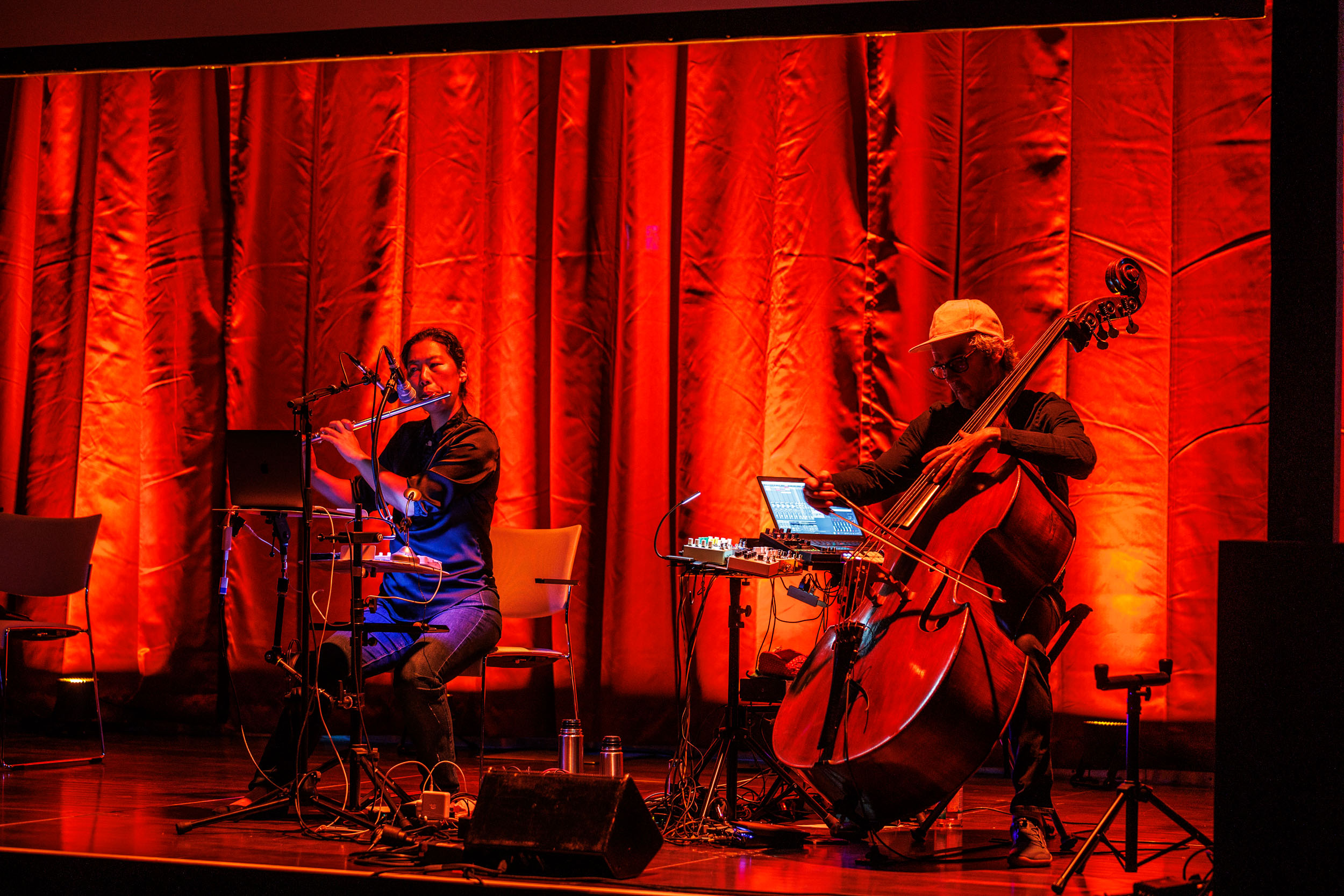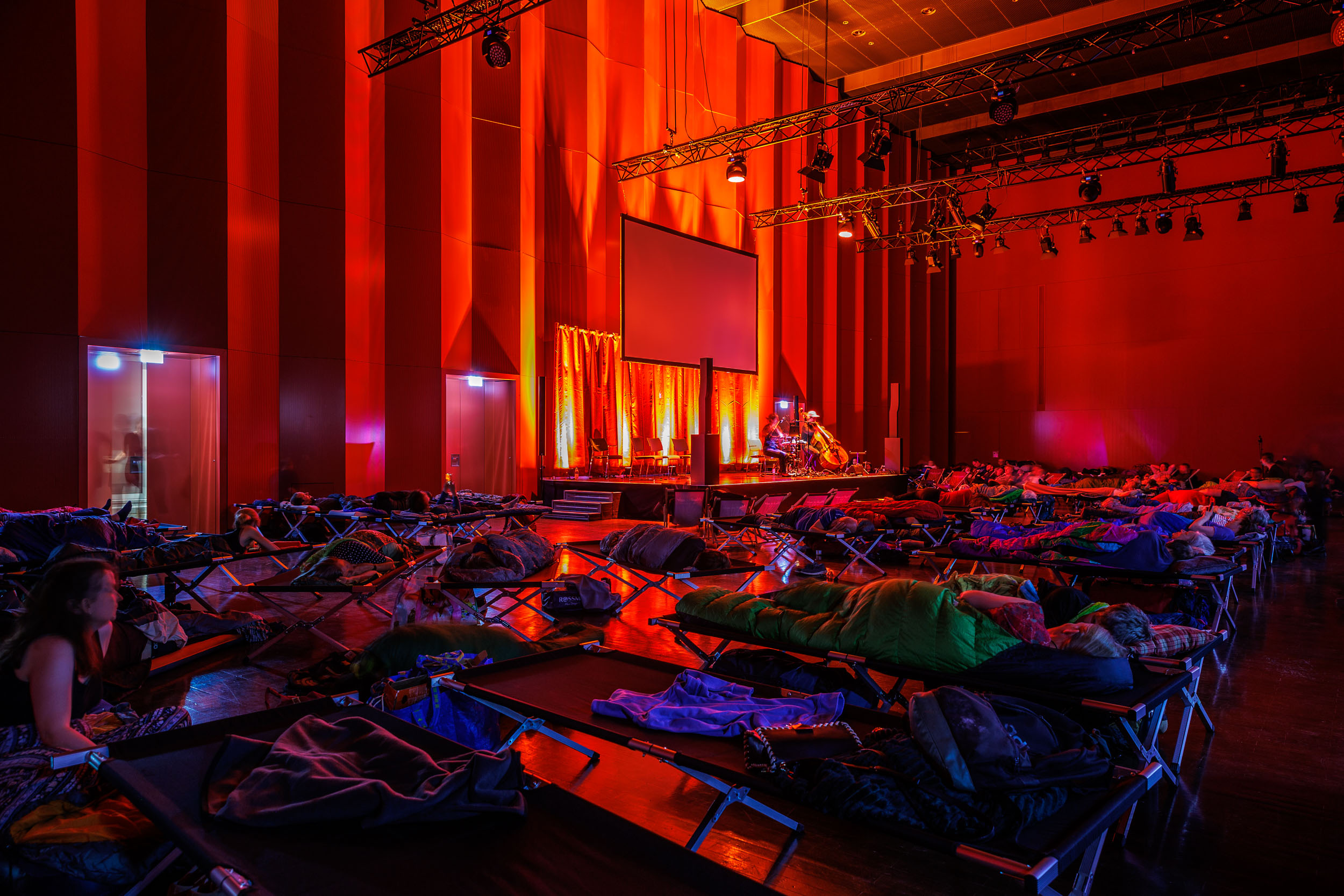lullabyte
June, 2023

pic: TU Dresden/Eric Münch
Have you ever dreamed of spending a night in a museum?
The Lullabyte project presents itself as part of the Dresden Music Festival and invites to an extraordinary evening on 1.06.2023 at the Hygiene Museum.
Music has strong effects on the human brain. Particularly well known are the “somnogenic” effects, i.e. that music influences the physiological state in such a way that sleep and relaxation are promoted – an effect that lullabies pick up on. But why does music have such a great influence on the brain that moods or even sleep behavior can be promoted? Since 2019, scientists* from neuroscience, psychology, musicology and computer science have been working together at TU Dresden in the “Lullabyte” project to investigate this question.
An exciting insight into the topic will be provided by “SOUND & SCIENCE” and an eight-hour sleep concert, which invites you to listen to sounds, relax or simply sleep.
Prof. Dr. Kira Vibe Jespersen – Assistant Professor at the Center for Music in the Brain, Aarhus University
Prof. Dr. Martin Dresler – Head of the Donders Sleep & Memory Lab, Donders Institute, Nijmegen
Jun.-Prof. Dr. Miriam Akkermann – Junior Professor for Empirical Musicology at the Technical University of Dresden, Germany
Duo Akkermann/Janek:
Miriam Akkermann – flute and electronics
Klaus Janek – double bass and electronics